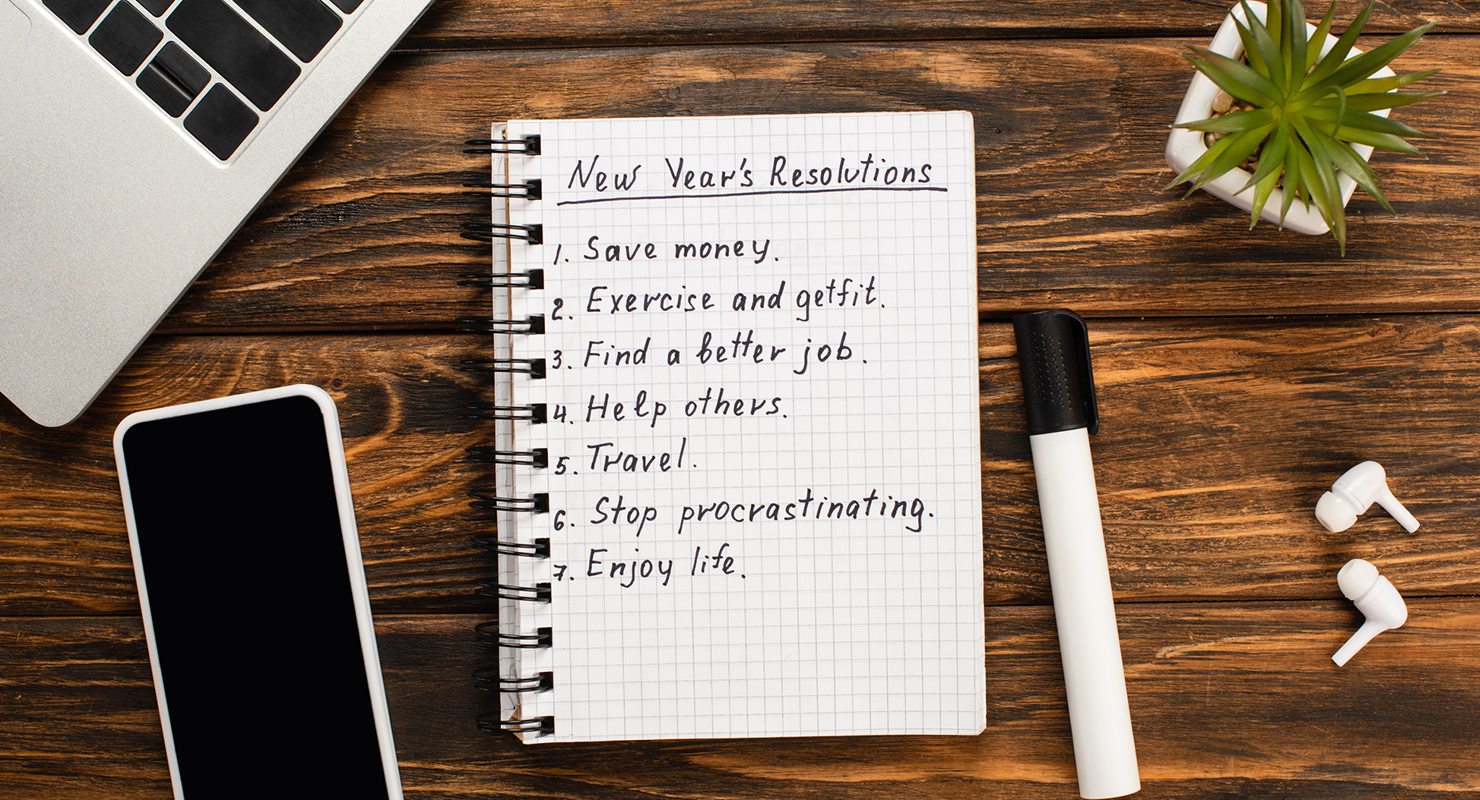New Year's Resolution
January 07, 2021

A healthy state of mind is important when setting realistic goals for 2021. Let’s start with the basics.
One of the first and crucial steps to setting New Year’s resolutions is to set up your annual wellness visit with a primary care provider (PCP) who will help you build a game plan to keep your health on track.
Build a relationship with your PCP by visiting them at least once per year for an annual physical. They will help you schedule healthcare screenings, including lifesaving screenings for breast, prostate and colon cancers.
Helen-Valentine Chukwu, MD, an internal medicine osteopathic physician with Memorial Primary Care, recommends three main resolutions for the New Year.
New Year's Resolutions Tips

3 Healthy New Year's Resolutions
1. Sleep
- Get at least 7 hours of sleep per night.
- Be consistent with bedtime (go to bed at same time every night).
- Create a calm environment.
- Avoid distractions – phones, light.
2. Remain Active
- Exercise at least 30 minutes, three times a week.
- Physical activity produces natural endorphins and helps reduce stress, anxiety.
- Help establish proper cardiovascular state.
3. Ensure Proper Nutrition
- Vegetables: fresh, grilled or steamed, not fried or boiled.
- Fruits: fresh or frozen, not dried or canned, which may have added sugars.
- Three meals per day (breakfast, lunch and dinner).
- Colorful plate: dark leafy greens, fresh herbs, peppers, broccoli, lean meats, poultry, fish, beans and whole grains.
Calorie Saver Tips
Try these simple food swaps to save calories.
- Replace 1 cup of pasta with ½ cup of pasta and 1 cup of broccoli to save 100 calories.
- Replace 1 cup of white rice with ½ cup rice and 1 cup of spinach to save 125 calories.
Snack Tips
- Healthy snacks between lunch and dinner may decrease the risk of overeating or choosing less healthy foods.
- Include sliced vegetables or fruit in a snack bag for easy access.
Beverage Tips
- Appropriate water consumption can help prevent dehydration, lubricate your joints, avoid constipation, aid the body to get rid of waste and stabilize your mood.
- On average, men should consume 3.7 liters of fluids per day and women 2.7 liters (20% of daily water consumption comes from food and other drinks).
- Excessive alcohol consumption can affect sleep, increase stress and ultimately, negatively impact overall health (i.e., lead to liver cirrhosis/pancreatitis/cancer of the liver, mouth, throat, larynx and esophagus/hypertension).
- Excessive drinking in men includes consuming more than 14 drinks in a week. In women, this includes consuming about 8 drinks per week.
Don’t just set it, achieve it. Here’s how:
- Establish a plan.
- Write down your goals.
- Involve others and speak to family and friends to help keep you accountable.
- Set weekly goals.
- Reward yourself for completing weekly goals with extra time for yourself, such as reading a good book, catching up on a great show, fishing, biking or purchasing a small token item for yourself.
- Pair up with others to work together and achieve similar goals.
2020 has been a tough and challenging year for everyone. If you or someone you know is suffering from anxiety or depression, share with your PCP. Do not be afraid to share how you are feeling, your PCP can work with you and provide necessary help.
Our offices are taking extra precautions to ensure patient and staff safety, and we are offering telehealth visits to make it as easy as possible for you to see your primary care provider in-person or virtually, from the comfort, safety and convenience of your own home.
Remember, an ounce of prevention is better than a cure.

